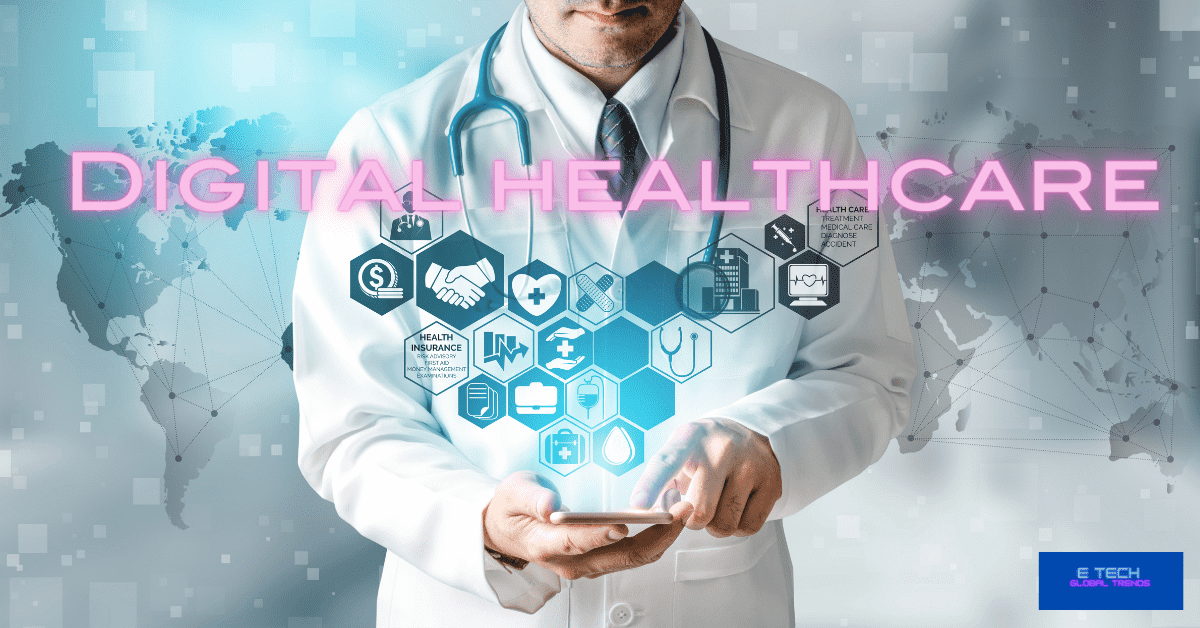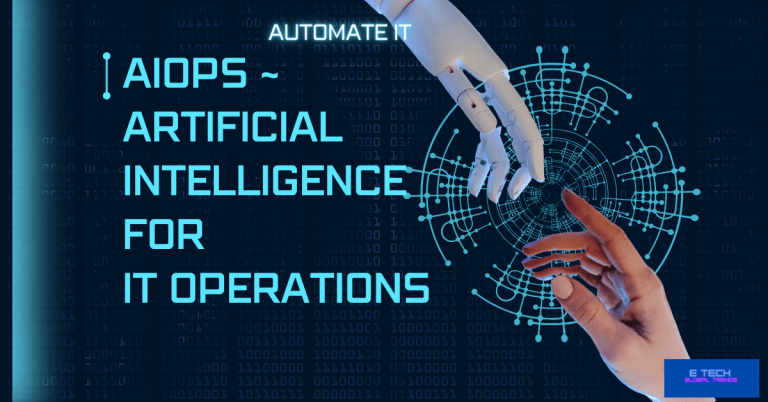Digital healthcare in 2022 and beyond
Digital healthcare? What is this and why is it important for all? The answer is simple. Nothing is more expensive than human life. Well, even if it’s true, then we have to analyze how? so, that’s why today’s discussion is about “Digital healthcare in 2022 and beyond.” Let’s get into the story.
Because it increases access to care, digital health is a crucial component of healthcare. It also aids in addressing the increased need for affordable therapies that don’t include lengthy travel or time away from home.
Why has digital healthcare become so crucial?
The emergence of digital health became so crucial due to a few facts One is the data’s increasing availability, which has risen dramatically. Tracking many elements of health, exercise, and nutrition is made feasible by the ease with which information can be gathered, stored, and analyzed. Data analysis is being accelerated thanks to the automation of various tasks in the digital health industry by AI. Digital health is growing as a result of new technological investments.
how ever, more people are spending money on health-related technologies, such as medical sensors and fitness trackers. AI and other cutting-edge technology are being used more often, which is helping to enhance patient outcomes and treatment alternatives.
The reason for the rapid development of digital healthcare
Because healthcare depends on scientific advancement and research, there have always been problems. The price of care rises as more therapies are created. In that sense, healthcare is unusual. In most cases, technology lowers expenses, but in the healthcare industry, it raises costs.
Access is another difficulty. A specific population density is required to sustain a contemporary healthcare system. Many remote areas lack the population necessary to support even doctors.
Of course, the other significant problem is that a lot of illnesses arise as a result of people being careless with their own health and adopting bad habits like smoking, which lead to problems that they trust the system to treat and resolve!
so here we try to convince “Digital healthcare in 2022 and beyond”
Why has healthcare technology gone so far?
The shape of remote healthcare tech is seen. Since the pandemic entered the picture, the healthcare sector has undergone significant upheaval, opening the door for virtual wound care. According to recent studies, illnesses might decrease to 40% of the population by the year 2040, mostly as a result of preventative efforts. (1)
Certainly, technology like eHealth apps and the internet of things will be crucial in this. Not to mention how many people throughout the world are enthusiastic about robotics and nanotechnology for diagnosis. Through the use of remote technology, patients may now be monitored remotely, reducing the length of time they must stay in the hospital. This eliminates the need for a doctor to be practically there at all times.
this is why our discussion “Digital healthcare in 2022 and beyond” is important
Latest healthcare trends in 2022
1.0 RPM
We included a separate article. Read it here.
Remote patient monitoring (RPM)
2.0 Internet of Medical Things (IoMT)
It is more important than ever to properly incorporate technology into healthcare as the world evolves and technology gains prominence. Already closely intertwined, technology and healthcare have saved and enhanced the lives of millions. Telemedicine, sometimes known as remote care, is another area of technology that emphasizes meeting the needs of people of all ages and in all locations.
If you haven’t yet included telemedicine in your practice, you might be wondering if it’s beneficial. And for nearly all exercises, the response is an emphatic “yes.” If you’re still unsure, this article will demonstrate how telemedicine services might help your clinic offer a better patient experience. It’s a Great Deal More Effective
- Time
- Convenience
- Money
3.0 Cybersecurity fact
Cybersecurity: this is related to Healthcare Privacy and Security: Making sure your company complies with HIPAA regulations is a crucial first step in preventing expensive data breaches. Consider the General Data Protection Regulation (GDPR) within the European Union if you are providing medical services to people abroad.
4.0 Organ Care Technology & Bioprinting
Organ transplants are unquestionably a significant component of the healthcare sector. For instance, the global market for transplants is expected to reach $26.5 billion by 2028. Matthew J. Everly estimates that there are roughly 2,000 heart transplants performed in the US each year.
5.0 Virtual reality (VR)
VR equipment enables persons with phobias and mental illnesses to socialize and adjust to daily life. They prepare for contact with the actual world in virtual reality in this way. Although they can significantly improve it, devices cannot replace traditional therapy.
6.0 Artificial intelligence (AI)
As digital behemoths like Microsoft engage in the upcoming trends in health care, we’ll probably see AI used as a B2C communication medium with significant potential to enhance patient care as well as an infrastructure to optimize efficiencies.
7.0 AI analytics and Big Data
This is the term use to describe the handling, processing, and storing of enormous volumes of patient data. Its applications can range greatly, from developing individualized treatment plans for each patient and monitoring the evolution of their conditions to avoiding epidemics, reducing expenses, and improving the performance of individual departments and patient care in its entirety.
8.0 RPA
Automated Robotic Processes (RPA), read here
9.0 Cognitive Automating (CA)
Cognitive automation refers to a subset of AI technologies that imitate human behavior. RPA works in conjunction with cognitive technologies, such as voice recognition, and language processing. that to automate perceptive and judgment-based activities. previously performed by humans.
What are the innovations in digital healthcare in 2022 and beyond?
Most importantly, the concept behind biohacking is to consider the body as a computer and any outside assistance as tools for breaking into and repairing broken systems. we must admit that biohacking was in a different form. from the beginning of time since it encompasses all methods that have an impact on our mental, emotional and spiritual well-being.
1.0 Blockchain adoption in healthcare:
Due to its decentralization, privacy, and cryptographic encryption, blockchain technology enables the safe sharing of sensitive data between patients and healthcare providers.
2.0 Telemedicine:
The application of telemedicine is wide-ranging; it includes keeping track of a patient’s health while he is receiving home rehabilitation, assisting those who live far from hospitals, allowing people to reach a doctor in an emergency, and handling problems that don’t necessitate a “real” doctor visit.
3.0 Technology for genome editing
Utilizing animal organs for human transplantation, or xenotransplantation has been given fresh life thanks to technology. By adopting genetic modification as a technique, it will be feasible to develop animals with organs that are acceptable for transplantation and eliminate the issue of organ rejection brought on by the body’s immunological reaction
4.0 Medical applications of artificial intelligence (AI):
AI market IBM, Google, and Microsoft are the three IT behemoths that dominate the market. The battle against cancer will be the primary focus of Microsoft’s recently announced Microsoft Healthcare NExT initiative. According to the business, cutting-edge technologies would be crucial in overhauling the healthcare sector. The cancer program also
What are the top digital healthcare solutions?
Digital healthcare in 2022 and beyond-
Today’s medical technology has advanced in a way that has never been seen before, making healthcare easily accessible. Patients and medical professionals may now communicate and coordinate even when they are geographically apart thanks to digital technology. The following list includes some of the most significant healthcare technology innovations:
1.0 Clinical Operations
Clinical studies involve a number of complex procedures, from participant recruitment to medication evaluation and FDA approval. These studies are efficiently and methodically administered with the assistance of clinical operations. Applications for clinical operations provide a framework for organizing the various process stages by medical personnel. makes use of IBM Watson AI.
2.0 Access to Patient Information 24 hours a day, 7 days a week
Updating and maintaining patient medical records may be hectic. To store, access, and update such knowledge at one’s fingertips, healthcare applications function as efficient databases.
3.0 Remote Consultation and Monitoring
Face-to-face consultations may not always be practical, particularly if the patient has to move suddenly or is traveling. In such circumstances, healthcare apps make it easier for doctors to consult with patients online and keep track of their health.
4.0 Effective Patient Registration
Digital healthcare solutions offer a platform that is efficient for patients to register and access top-notch medical services rapidly.
Will digital health future healthcare involve robots?
Of course, medical robots aid in surgery, simplify hospital operations, and let medical professionals provide patients with more outstanding one-on-one care. In the medical industry, robots are revolutionizing how surgeries are working. speeding supply delivery and cleaning, and giving medical professionals more time to interact with patients.
What does wearable technology’s future hold?
The importance of wearable technology is rising in the modern healthcare sector. People want to be able to self-monitor their health and have more access to professional equipment outside of health institutions.
Due to wearable technology, healthcare technology started to extend outside of hospitals, care centers, clinics, and other health providers. Due to increased availability, people may now afford to have specialized medical equipment in their homes.
Wearable gadget technology has advanced dramatically by fusing human senses with sensors, creating new opportunities in a variety of business sectors.
The progress of wearable technology is opening the door for the creation of complex communication and navigation systems. The healthcare industry continues to have perhaps the most potential for wearable technologies. The popularity of wearable technology in healthcare is rising as a result of its adaptability and simplicity.
More uses of wearable healthcare tech
The bulk of wearable technology is used to monitor wearer health and wellbeing data. A digital revolution is taking place in the healthcare industry as a result of the fast influx of technology.
In terms of patient tracking, disease diagnosis, treatment, and sickness prevention, the combination of Artificial Intelligence and Big Data in wearables is adding value to the healthcare industry.
Wearables, which formerly mixed the functions of fitness trackers & fashion accessories, are progressively becoming significant tools for serious healthcare.
Fitness trackers, which let you track your exercises, heart rate, and frequent movements, have gained significant appeal since the introduction of the Fitbit and, obviously, the Apple Watch.
The next generation of intelligent healthcare wearables will fundamentally alter medical research and elevate people’s quality of life,
according to experts.
The Use of Biosensors for Monitoring Geriatric Well-Being in
- Smart health watches
- Aids to Hearing
- Monitoring of Mental Status
- Wearable fitness trackers,
- Wearable ECG monitors
- Blood pressure monitors, wearable type
- Plus more to come…
Conclusion-“Digital healthcare in 2022 and beyond”
This is a prediction about the future. Technology can and will alter the healthcare industry. Digital technology in medicine and health care has the ability to modernize outdated healthcare systems into effective ones, offer more affordable, quicker, and more efficient treatments for diseases, and equalize the interaction between medical experts and people, which is now not particularly positive in many regions.
Since there are so many diseases (such as AIDS, Ebola, and others) that are now incurable yet nevertheless claim the lives of countless numbers of people each year. I believe that the healthcare industry needs to update as soon as possible.
Read more on related topics; Bionic Eye, Novorapid Flexpen, Bioartificial Kidney







